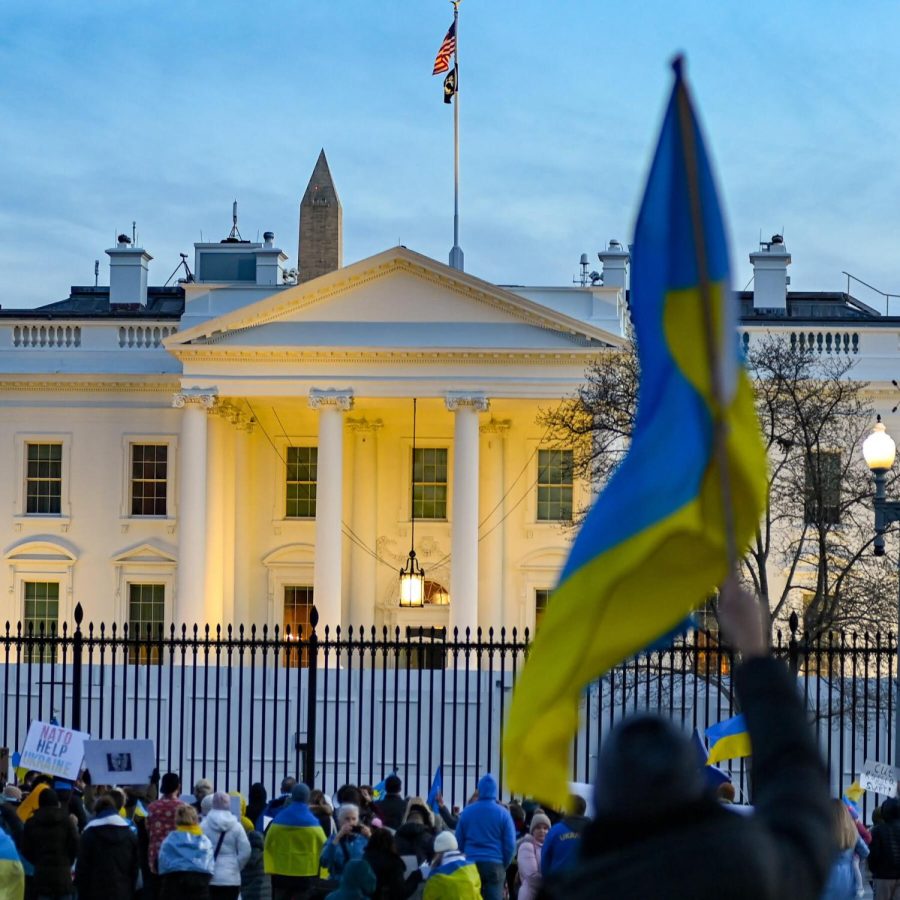Recognizing Patterns, Learning Lessons: A Duty to Provide Refuge
In the years leading up to the Holocaust, hundreds of thousands of Jews foresaw what was to come and attempted to escape their countries before it was too late. Unfortunately, many Western democratic countries turned their backs on these refugees, resulting in countless unnecessary deaths. In the refugee crisis facing the world today, humans must learn from the lessons of the Holocaust to ensure they do not make the same mistake.
In the late winter of 2022, Russian forces invaded Ukraine under the command of Vladmir Putin. Putin clearly operated with the assumption that Ukraine would easily acquiesce — a quick victory and installation of Russian government. This was not a far-fetched expectation. A country as small as Ukraine making military advances on Russia, historically one of the most powerful countries in the world, would have been unheard of. Despite that presumption, Ukraine has made major advances in regaining territory that is rightfully theirs. Part of how it has achieved such a feat is the support of democracies around the world. Along with financial and military support, as well as heightened awareness among the global public, democracies have offered a crucial thing for Ukraine: sanctuary for its eight million immigrants.
Preceding the Holocaust, a series of events, including the Nuremberg Laws and Kristallnacht, made it abundantly clear that Adolf Hitler was he had a horrifying obsession with Jew. This obsession would leave six million of them, along with many others, dead. Many European democracies were occupied not long after these anti-Semetic events in Germany, so rather than being able to open their doors to German immigrants, they had immigrants of their own looking to flee. In sharp contrast, the United States was never directly touched by Nazism.The U.S. stands on a foundation of immigrants — it has more international migrants than any other country. It was in a position to harbor as many immigrants as needed, but it largely failed on that front. Not only was the visa process extensive and bureaucratic, but its leaders made a definitive decision to reject Jews refugees that we had the capacity to accept. From rejecting a bill to accept 20,000 Jewish refugee children to turning away ships of European Jews, the United States communicated a clear message: the lives of Jewish immigrants were not worth saving. Democracies, especially the U.S., must learn from this reprehensible error, and recognize that providing a safe haven now saves lives later.
Comparing current events to the Holocaust is always a fine line to walk. But recognizing similar patterns is crucial to preventing history’s otherwise inevitable repetition. As Winston Churchill said, “Those who fail to learn from history are doomed to repeat it.” It’s impossible for the tragedies that occurred under the Third Reich’s rule to appear identically in the current world, but there are many parallels. Hitler obtained power through a democratic process, then slowly stripped Germany of any trace of democracy; Putin was voted into office in 2000 and since then has gradually transformed Russia’s government into something closer to an autocracy. Hitler invaded neighbor France in a successful attempt to annex the country and take control as a German dictatorship; Putin invaded its neighbor Ukraine in an attempt to annex the country and take control as a Russian dictatorship. Hitler used civilians as leverage; Putin’s army is committing war crimes against Ukrainian civilians. It is not a coincidence that the immigrant crises resemble each other –– so do the atrocities committed by the respective leaders.
With the knowledge of history, as well as the responsibility to recognize patterns and interrupt them before we, as humans follow the mistaken paths of the past, democracies have an obligation to support Ukraine’s defensive efforts, especially to protect peaceful citizens. Not only is it a powerful country’s moral duty, but it is in the best interests of democracies to support and protect democracy around the world.
Sheltering innocent citizens from war is always the ethical thing to do, but it should especially be prioritized when the opposition is committing war crimes. Putin has violated the international laws of the United Nations, an organization built specifically to prevent atrocities like those committed by the Axis powers. In March 2023, an Independent International Commission of Inquiry by the United Nations found evidence of war crimes, confirming the fact that citizens have been, and will likely continue to be, in heightened danger.
This situation means that even if supporting Ukraine were of no political benefit, democracies must do everything they can to help Ukrainian immigrants. However, there is a political benefit to supporting Ukraine, a democracy, against an authoritarian oligarchy. Democracy was attempted in 1991 with the fall of the Soviet Union, but it largely failed, and Russia now scores a 16/100 on Freedom Houses’ scale measuring a country’s freedom. According to the U.S. Embassy, Russia does not hold free or fair elections. In Russia’s attempted annexation of Ukraine, it is trying to force an autocratic government onto the latter, much like Germany did to France almost a century ago. Being a part of Russia and being a democracy are mutually exclusive, so we must prevent Ukraine from becoming a part of Russia in the first place.
My generation has never experienced anything comparable to Russia’s occupation in Ukraine. This is the largest refugee crisis, as well as the only war in Europe in our lifetimes. As the leaders of the future, we must remember history without having experienced it. If we can successfully learn from and identify patterns of the past, then we can ensure that our country, and other democracies, do the right thing. In today’s context, this means making sure Western democracies fulfill their duty to provide support for Ukraine and sanctuary for its refugees.
Sources:
Bove, T. (2022, February 4). Frequently Requested Statistics on Immigrants and Immigration in the United States. Migration Policy Institute. https://www.migrationpolicy.org/article/frequently-requested-statistics-immigrants-and-immigration-united-states#:~:text=Worldwide%2C%20the%20United%20States%20 is,Population%20Division’s%20mid%2D2020%20data.
Freedom House. Russia: Freedom of the World. Freedom House. https://freedomhouse.org/country/russia/freedom-world/2023.
Lind, D. (2017, January 27). How America’s rejection of Jews fleeing Nazi Germany haunts our refugee policy today. Vox. https://www.vox.com/policy-and-politics/2017/1/27/14412082/refugees-history-holocaust.
US Mission to the OSCE. (2021, September 23). Russian Electoral Conditions Not Conducive to Free or Fair Duma Elections. https://osce.usmission.gov/russian-electoral-conditions-not-conducive-to-free-or-fair-duma-elections/.
Ward, N and Batalova, J. (2023, March 14). Frequently Requested Statistics on Immigrants and Immigration in the United States. Migration Policy Institute. https://www.hopkinsmedicine.org/health/conditions-and-diseases/coronavirus/is-the-covid19-vaccine-safe


